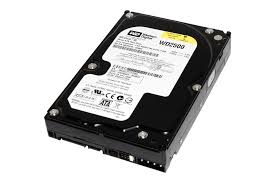Software Vendors and the Software they sell

While it is a fact that commercial software limits the choices that one has when it comes to customizing compared to open source, has higher chances of vendor lock-in and more licensing restrictions, these negatives however pale to the pros that such software has to offer.
Software vendors like IBM, Microsoft and others however continue to define and offer more advanced software when it comes to support and use. The risks of using software from such software vendors are also much lower due to its continued support, years after its release.
One point that critics point against commercial software is the lack of interest in innovation. It is often claimed that open source software is more innovative than commercial software. In my opinion, probably this is due to the fact that paid developers are restricted from using their imagination and creativity.
Of course, the creative spark is in all of us, but the volunteer programmers will generally have freedom and enjoy what they do, and thus, it seems that open source is more innovative. In the real world however, software vendors have what might be called calculated innovation.
In fact, products from some of the top commercial firms continue to dominate the corporate world proving that innovation is alive even in these criticized circles.
Software from commercial software vendors is offered with support and this is one reason often cited for choosing commercial software over free open source alternatives. Even when such support is not used, it usually does not matter since it is always there where needed.
This is especially important when it comes to large corporate firms that need a pillow to take a tumble on when things go wrong. Commercial software vendors are more reliable as opposed to a group of 20-year olds in a basement. The safety, indemnity and warranty that such corporations offer usually provides a platform from where large firms can launch their business ideas and ventures.
How though do you survive the selection process when there are hundreds of software products to choose from? If you have limited resources of technical experts and subject matter experts, you might consider hiring a consultation firm specializing in software selection.
Some basic questions though that you can ask yourself when weeding through the software vendors are: what is driving the change? Does the legacy system to be replaced have performance issues? Is it becoming expensive to continue using the legacy system? You might just find that asking such questions will help you make the right software selection.


[wrc_post_widget id=’1404′]








